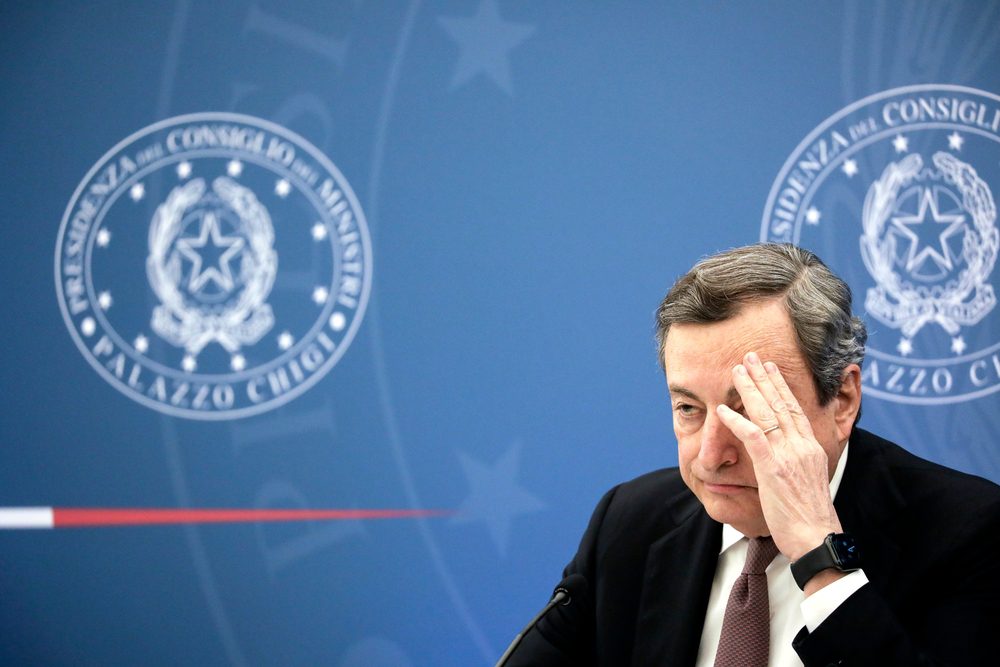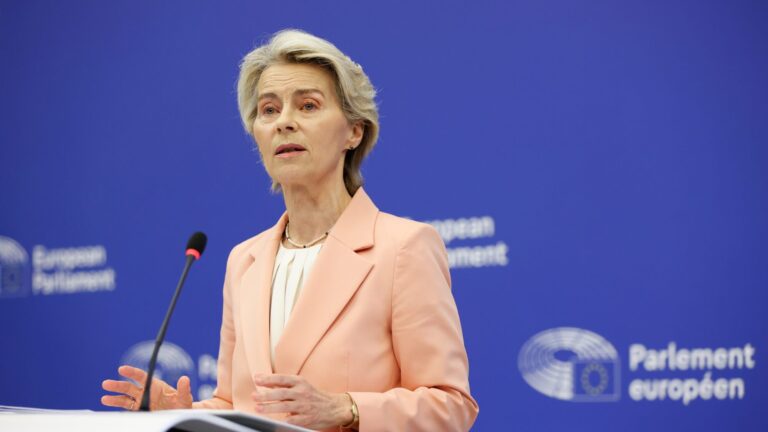As one European leader, faced by immense political pressure, at last fell on his sword a week ago, another is being advised not to.
Italy’s Prime Minister Mario Draghi tendered his resignation on Thursday, when a coalition partner, the populist 5-Star Movement, mutinied. The party refused to show support in a confidence vote over Draghi’s plan to combat soaring prices. This comprised a multi-billion dollar package that would make high energy prices and inflation more bearable for the population.
Former Prime Minister Guiseppe Conte’s 5-Star Movement blasted the plan for being insufficient, adding that borrowing was needed.
In a statement made to President Sergio Mattarella at the Quirinale Palace in Rome, the former European Central Bank president said that “the national unity coalition that backed this government no longer exists.” Draghi, now 74, is the sixt Italian prime minister in a mere ten years.
Mattarella, a sort of arbiter in the tumultuous sea that is Italian politics, however seeks to prevent further fraying. With the worst-case scenario of a collapsed government in mind, he rejected Draghi’s request on Friday, asking him to reconsider and appear before parliament next Wednesday. There, he asked that Draghi—who was never elected— make an address so as to give a clearer picture of the political situation.
Mattarella, 81 himself, can then either try to persuade Draghi to form another government, find a new caretaker leader to take Italy to the election next year, or call an early election in autumn, analysts say. The latter is highly irregular for the country, since that is normally the time when the budget is drawn up and approved by parliament. Italy has not had an autumn election since WWII.
Draghi, a former European Central Bank (ECB) president, is currently leading a national unity government which has been in office less than 18 months. With the government being made up of parties from all over the political spectrum, actual governance has been more than challenging, as Italy—along many others—is gripped by mounting inflation and soaring energy costs. With elections to be held in the first half of 2023, the divisions among Italy’s political parties have only intensified, culminating in the confidence vote on Thursday.
The move by 5-Star might have been an opportunistic one. After a massive win in the 2018 elections, making it the largest in the country, it has since lost much of the public’s favor while suffering defections.
Italy’s political crisis could not come at a worse time. Even though it is the third largest economy in the eurozone, Italy has been struggling with economic stagnation and a debt crisis which Draghi thus far has been unable to solve.
Within the government, pessimism meanwhile reigns. To Foreign Minister Luigi Di Maio, the prospect of Draghi’s coalition weathering this particular storm, is increasingly improbable. Last Saturday, he told RTL Radio that “it would be right for the Draghi government and the coalition to continue, but at the moment I see that as highly unlikely.”
Whichever way next Wednesday unfolds, Draghi—should he heed Mattarella’s plea and decide to move forward—now has even more on the docket.





